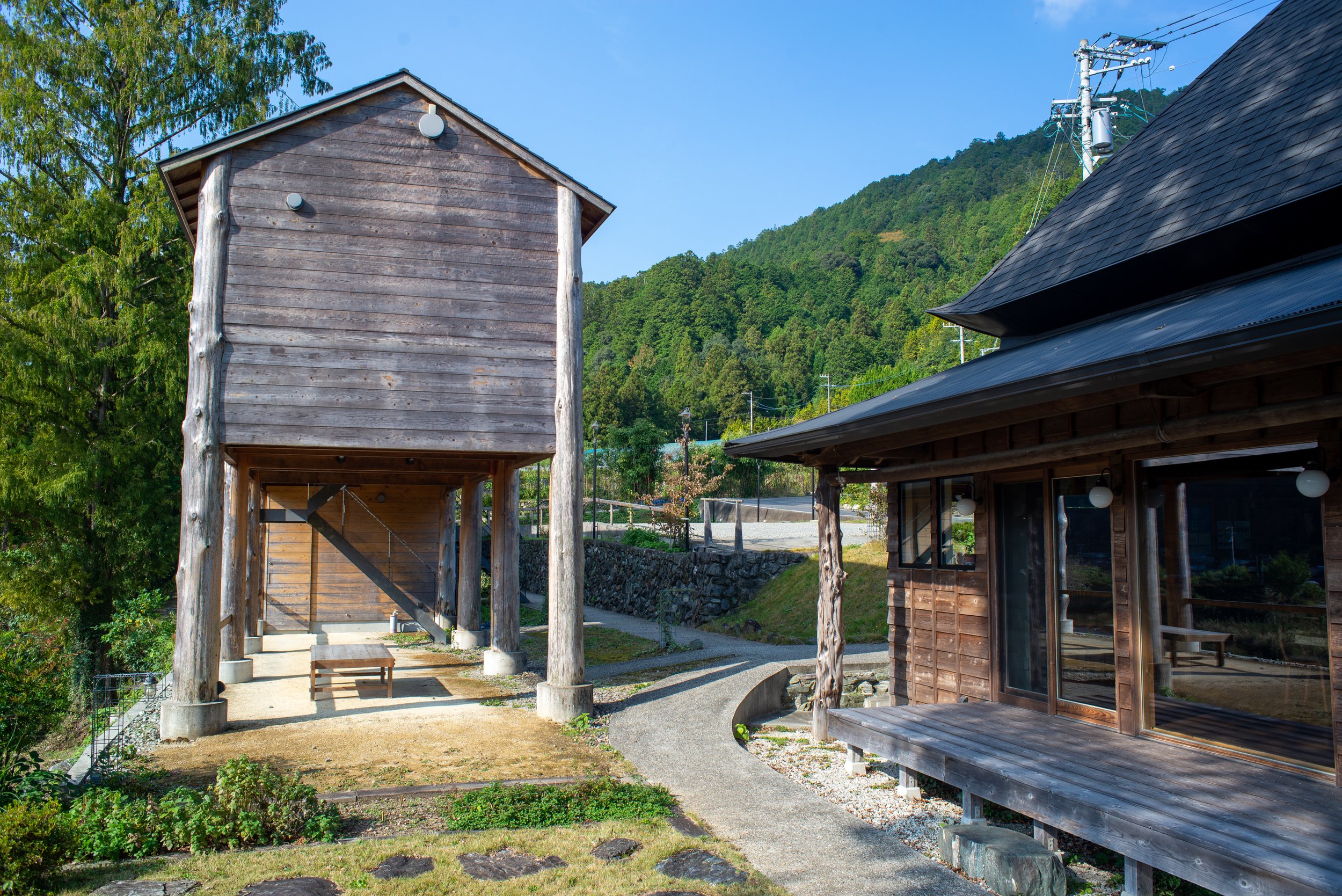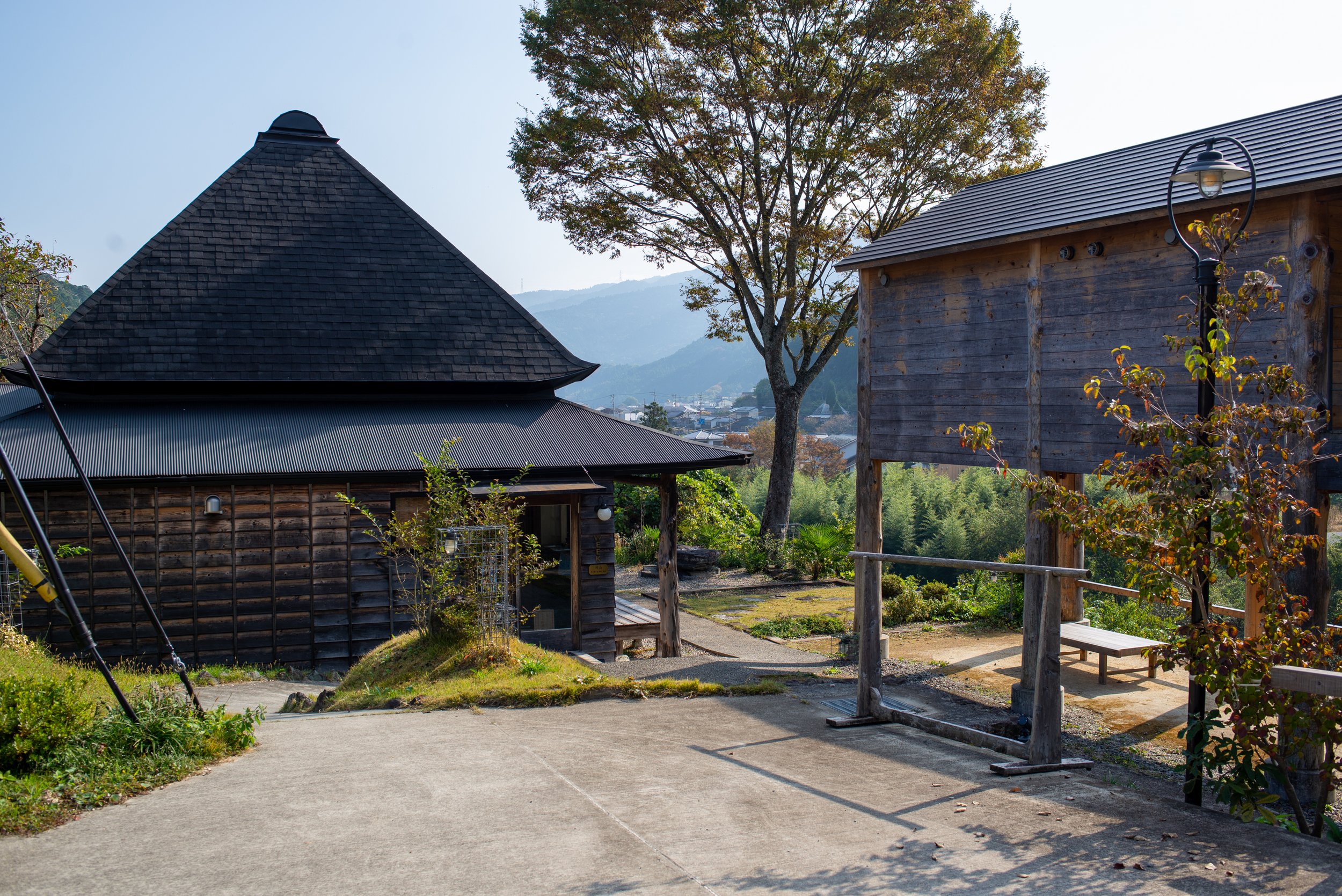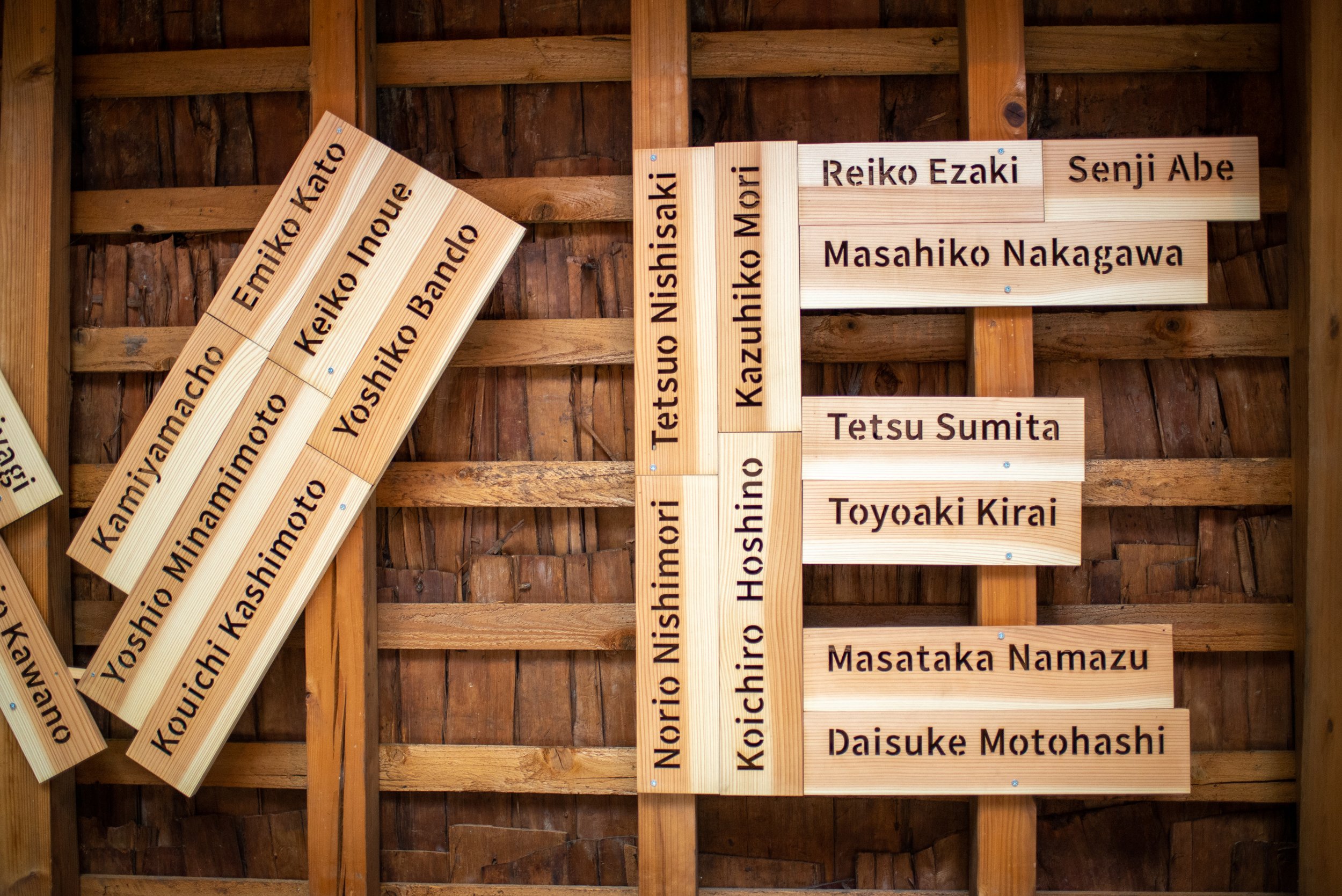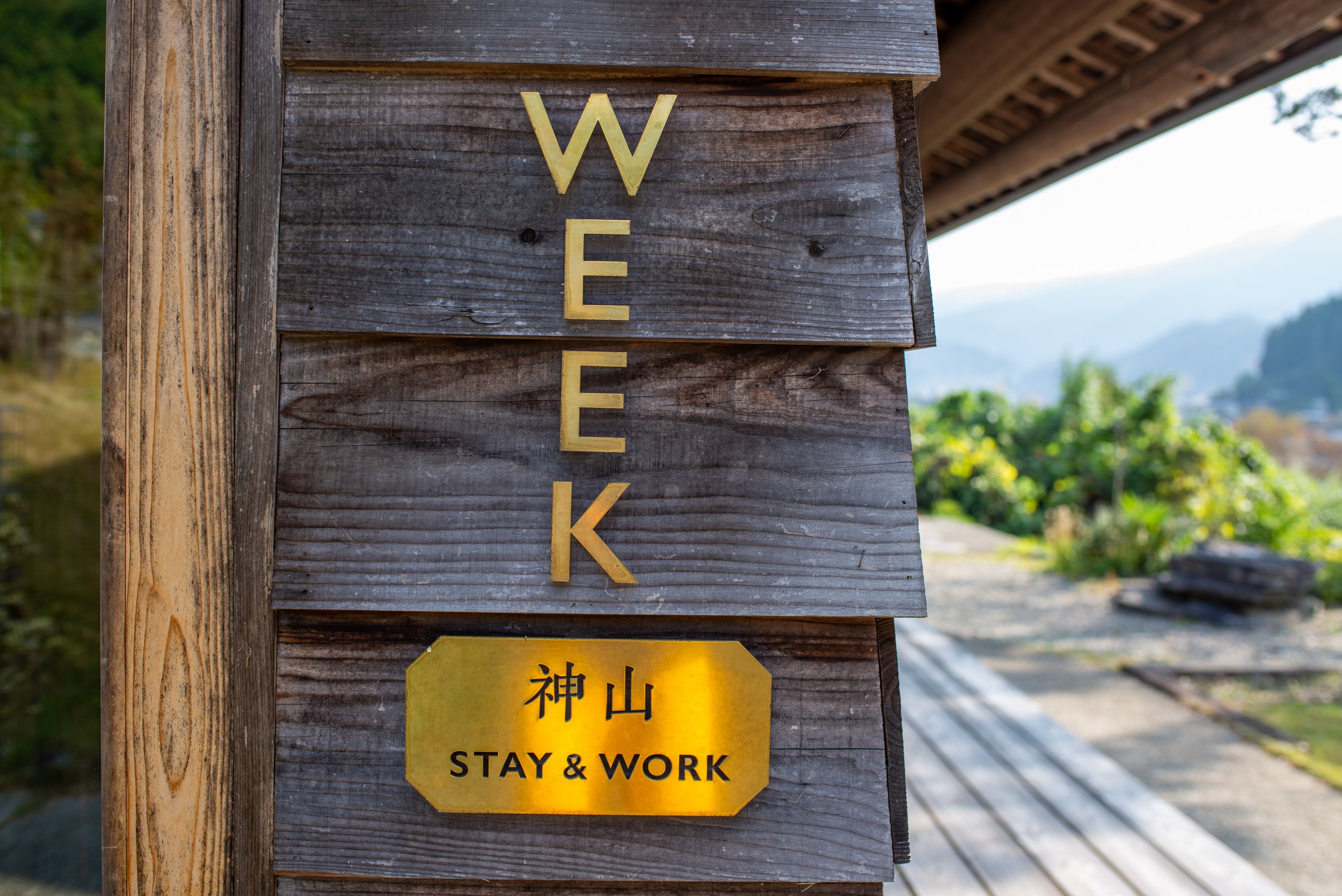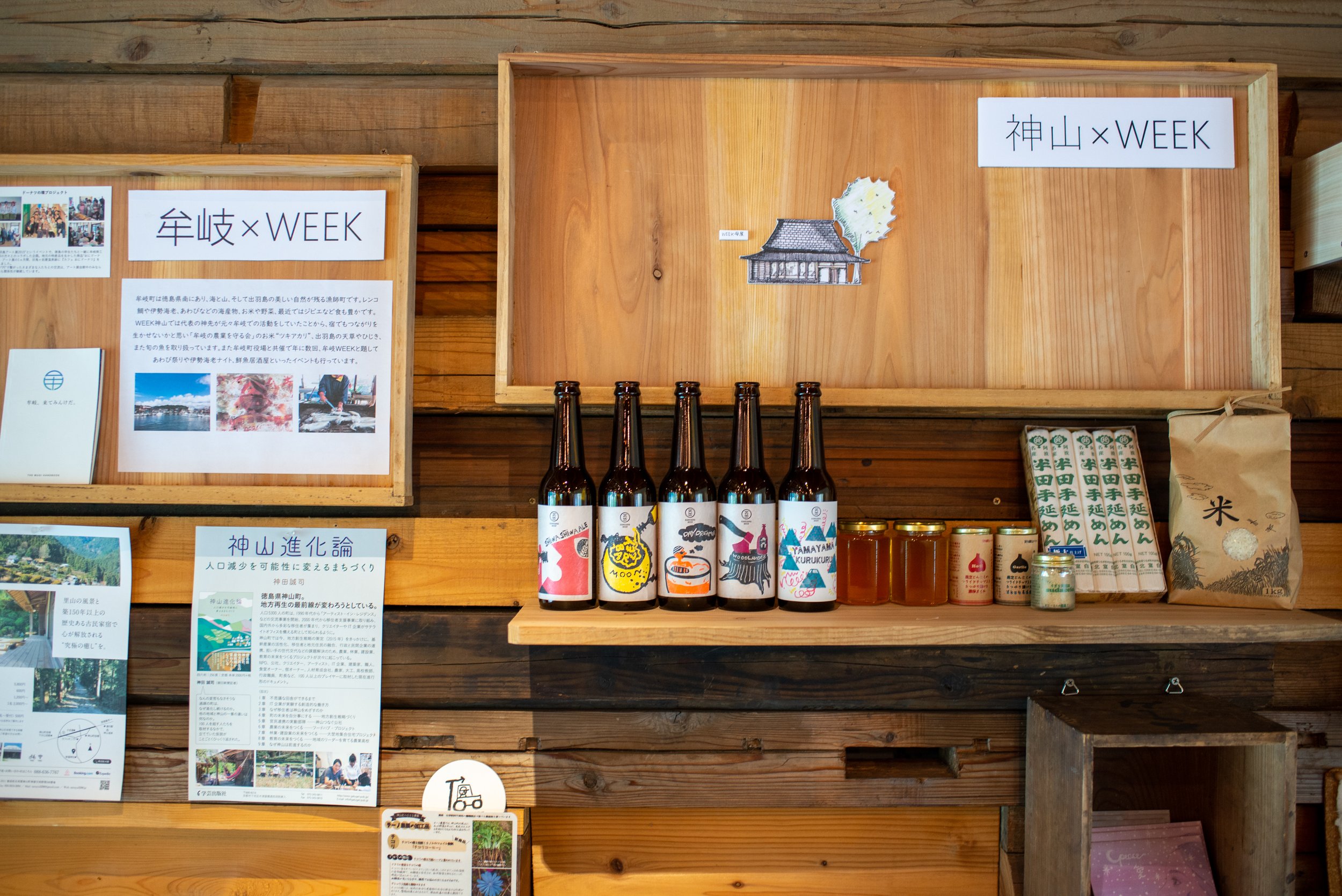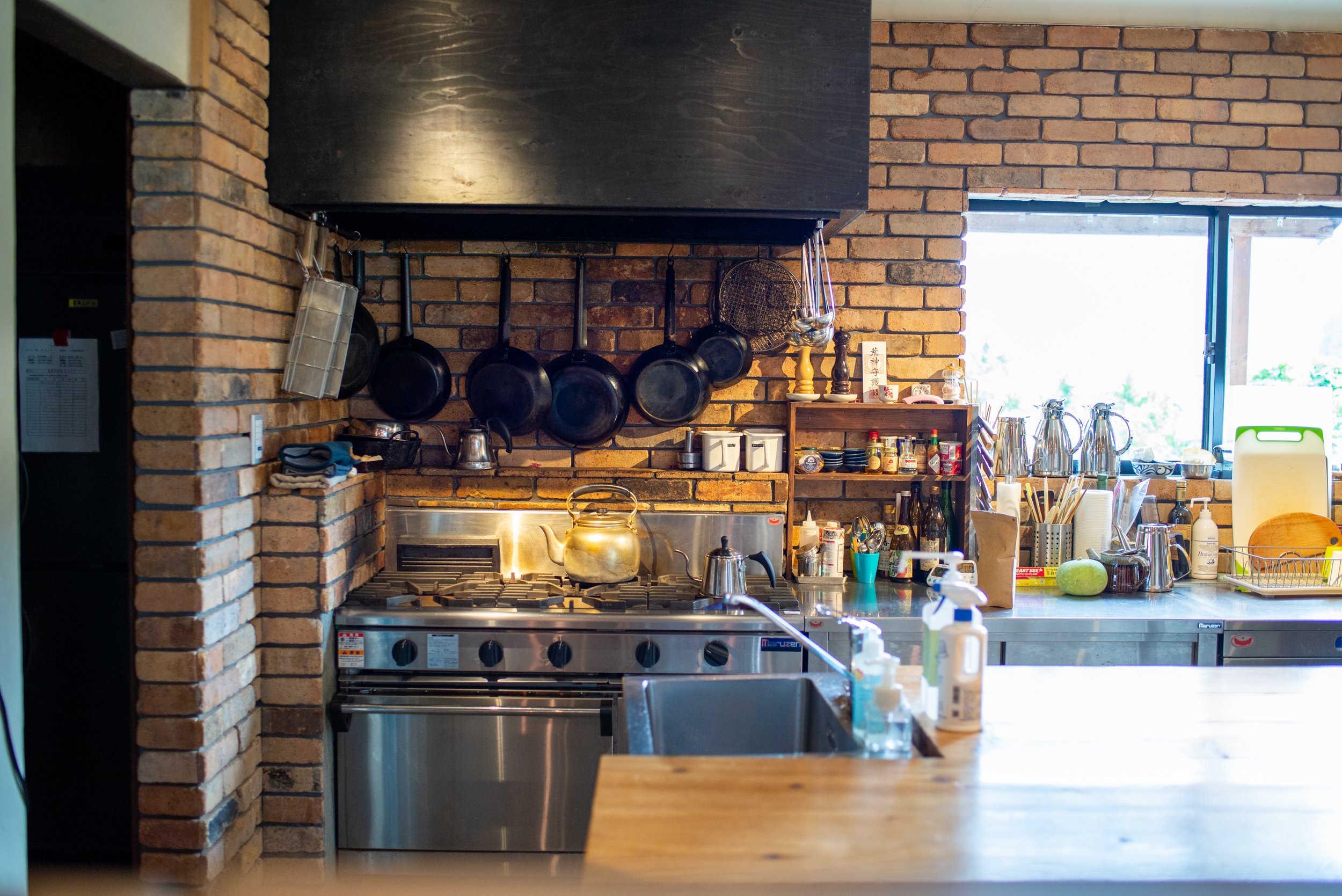Takeshi Kanzaki: Cooking is a tool to connect people
Takeshi Kanzaki started his cooking career when he was looking for a part-time job as a university student. As his knowledge and experience accumulated, Kanzaki became a better chef, but he also began to question, what else is waiting for him outside the kitchen? He went overseas in hope of an answer, but came back to Japan with more questions — until he encountered Kamiyama in Tokushima prefecture.
In this conversation, Kanzaki, who is currently the representative of WEEK Kamiyama, talks about how he felt his life expanded at Kamiyama, why he is not fixated to the “chef” identity, and what he wants to challenge himself.
Text, Photos: Marco Lui
The following is an excerpt of KIKITE’s conversation with Kanzaki in November, 2021. It was conducted in Japanese. Questions and answers have been edited for clarity and brevity.
It’s been a couple of months since I first met you in June. I was staying at WEEK Kamiyama with my colleagues and you prepared us a very delicious dinner. How did you get into cooking?
I started working part-time at a restaurant when I was a university student. The boss was in his 30s, highly motivated and mature. I thought to myself, it would be so cool if I could start my own business one day and define my own career. During that time, there were other part-timers and I learned a lot about cooking from them. Gradually, my skills improved and I started thinking more seriously about cooking.
The second place I worked at is a nationwide restaurant chain, and it held internal cooking competitions four times a year that part-timers like me were also eligible. I won the president's award in my first attempt, and I kept winning prizes since then and received a lot of praise. That’s when I got hooked on cooking — searching for ingredients, developing recipes, observing others’ approaches and reading books.
What happened next?
I was in the kitchen the whole time. Then when I was 25, I tried to imagine myself at 50, and I started to have some doubts about whether I would be doing this job forever. I wanted to try different things, meet different people, and explore what else was possible.
At that time, I read on the internet that Southeast Asia was going to grow tremendously, and the city that was going to grow the most in the next 20 years was Ho Chi Minh City in Vietnam, and second was Hanoi. So I thought to myself, maybe if I go to Vietnam, something would change. I found an editing job for a magazine that was about to launch, and I was told that I could go there with no experience, so I jumped straight in.
That sounded like a big jump from the kitchen!
Yea, but I was too naive. I didn't do much over there. Since it was a new business, I was told to do everything by myself. But I didn't have any idea what I was supposed to do, not even where I should start.
Also, the company and the place where I lived were in the same building, and the building's security was very strict. I was not allowed to go outside, not even going out to buy lunch.
Every day I was yelled at for my inability, every day I was pushing myself to the corner a little more. I realized if it continued like this, I would no longer be myself. So I left and came back to Japan in less than a month. That was a failure.
But this “failure” has shaped you and led you to Kamiyama, isn’t it?
Yes, it did. That was a setback that stayed with me for about three years, but after that, I came to think that it was a very good thing. I was very naive in my perception of myself. I thought that if I went there, the environment would be on my side and support me, but that was not the case. What is important is that I could change myself. If I do something different from the day before, day in and day out, I would change as a result.
What brought you from Yamagata to Kamiyama?
I knew that the job in Yamagata would last about 10 months and end in March of the following year. I decided to leave Yamagata, but had no intention of returning to Kyoto, so I did some research and found a rather unusual job information site called Nihon Shigoto Hyakka (literal translation: Japanese career department store). It is like an online magazine as much as it is like a job-hunting website. So it is informative but also entertaining to read. One of the articles was about a program called "Kamiyama Juku," a vocational training program in which participants live in Kamiyama for 6 months and try various things. When I saw this, I thought about what I could really do and what I wanted to do, and I thought that I could do something here.
Then, on the Kamiyama Juku website, there was a comment from Shinya Ominami of NPO Green Valley. He said, "Young people today try to do big things, but in the end, they don't know how to do them and are overwhelmed. The key is to clear the hurdle right in front of you one after another. When that snowballs and becomes bigger and bigger, eventually you will be able to influence society.”
When I read that, I was so inspired. I was always thinking of doing something big, but it all came to nothing and I ended up in the situation I was in. The truth is, I just have to do one small thing at a time. I thought that in Kamiyama, I could find my path.
“I was hoping the environment would be on my side and support me, but what’s important is that I could change myself. If I do something different from the day before, day in and day out, I would change as a result.
What did you do at Kamiyama Juku?
The first thing we were asked to do is “self-disclosure.” For example, if I have a kind of guardian spirit of my own, how would that guardian spirit introduce me to others?. Also, I lived with my classmates for the first month, we would talk a lot at night. In the process, I started to gouge out more and more of myself (laughs).
Then we were asked to plan and execute an individual project that could be done within six months. I happened to come across a flier about a marché event, and upon seeing it, I decided to set up a “yatai” food stall here.
At first, I thought I would make everything myself, but in the end, what I could sell at the yatai would be limited. I found a store that makes additive-free ham and sausage in Ishii, a town next to Kamiyama, and I decided to use their frankfurters. I used rice flour made from rice grown in the terraced rice fields of Kamiyama Juku, and ketchup from Hikari Foods, an organic food product company in Tokushima Prefecture. I sold baked rice-flour crepes and frankfurters on a charcoal stove at my yatai. That was an unusual sight (laughs).
“I use cooking and food to connect with people and create a space. Cooking has become more of a weapon that I have in my arsenal.”
With your yatai, you were encountering a lot of new people all of a sudden.
Yes, it did. I got to know the people who were running the marché, and I gradually became friends with other stall holders. People who run yatai tend to be people who lead unusual lives (laughs).
I was inspired by the fact that there are all kinds of people in the world, all kinds of ways of thinking, and that encounters with people were very stimulating.
Did this experience change the way you think about cooking?
Absolutely. I like cooking, but now I think of it as a tool that I can use in my business, but I don't see myself cooking in the kitchen all the time anymore. I use cooking and food to connect with people and create a space. Cooking has become more of a weapon that I have in my arsenal.






